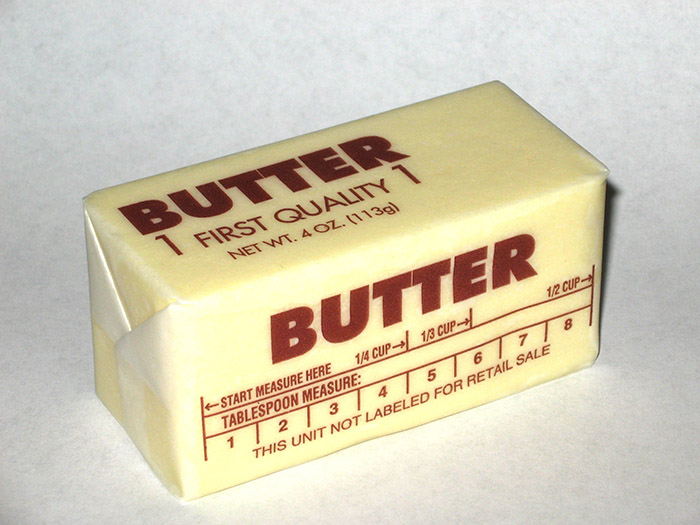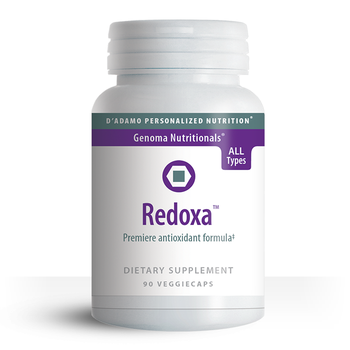Blood Types, Fats and the Intestines |
|
No single diet theory can address all aspects of our individuality, and only a fool would claim that soy, red meat, grains, coconut oil or anything else is universally good or universally bad for everyone. This appears to be especially true of any discussion about dietary fats. No other macronutrient in the diet has veered as much from embrace, to vilification, and back to embrace, as the 'expert' opinions on the importance and dangers of fats in the diet. So, who's right and who's wrong?
Blood type may provide the answer. For example, people who are blood groups O and B appear to derive significant benefit from a diet including healthy fats and lean animal proteins, such as hormone and antibiotic-free meats and poultry. There is a very basic physiologic reason for this: those with type O/B blood produce between 3 and 5 times the levels of an enzyme in their intestines known as intestinal alkaline phosphatase (IAP). IAP is a critically key enzyme involved in the process digesting proteins and fats. [link] A Key Enzyme For a few short weeks of fetal life, IAP is actually the most abundant enzyme in the fetal physiology. This is due to IAP's critical role in helping to produce and condition the absorptive surface of the digestive tract, in particular the microvilli, delicate finger-like projections of the gut lining that are responsible for the absorption of nutrients. IAP is also an important influence on the ability of the digestive tract to heal. Thus in most of our type O patients (44% of the population) we also observe a marked improvement in their irritable bowel syndrome (IBS), colitis and Crohn's disease when they increase their protein and cut back on their carbohydrates. [link] In adults, the IAP enzyme performs two very important functions, both having to do with digestion and assimilation. First, IAP splits dietary cholesterol into smaller fragments, allowing for their proper breakdown. Second, IAP enhances the absorption of calcium from the diet.*  Blood group O seems to produce the most IAP, although blood group B makes considerable amounts of IAP as well, but blood group A and AB make very little. This probably explains why most studies that have looked at heart disease and blood type show a significantly higher rate of problems with blood group A individuals. These folks really should follow a plant-based, Mediterranean-type diet. Now, Here's the Kicker What is the single biggest stimulant to the production of IAP? Protein and fat in the diet. Thus in individuals who are blood type O or B, a meal comprised of significant amounts of both protein and fat will stimulate an enzyme that helps break down fats and enhances their ability to assimilate calcium. However, when they overconsume carbohydrates, their triglycerides will tend to rise and another protein linked to IAP and blood type (APO48-B) rises and increases their transport and assimilation of fats from the intestine. Them Bones, Them Bones Other nutrition experts warned that excessive protein in the diet would lead to outbreaks of osteoporosis. This was thought to result from the acidity caused by the higher protein diet. Dubbed 'The High Protein Bone Hypothesis,' the theory was that the body would rob its bone of calcium to combat (buffer) the acidity from the high protein. This hypothesis would also predict that a long-term, high protein diet would increase fractures. However, in a recent study conducted over eight years it was found that a high protein diet induces high levels of urine calcium primarily because it increases intestinal calcium absorption. Second, a low protein diet acutely reduces intestinal calcium absorption, resulting in an abrupt rise in serum parathyroid hormone (the parathyroid is a key gland that helps regulate the amount of calcium in the blood and within the bones.) Had they stratified the study according to blood type I have no doubt the results would have been even more marked. [link] Yet Another Connection IAP variation due to blood type differences also relate a class of biologic assemblies known as lipoproteins. To understand this relationship, let's take a look at at this fascinating family of molecules. Lipoproteins are composed of both proteins and lipids (fats) attached to the cell membrane, where they act as emulsifiers, allowing fats to move through the water inside and outside cells. Examples include the plasma lipoprotein particles are the well-known high-density (HDL) and low-density (LDL) lipoproteins, cholesterol and chylomicrons. Chylomicrons are large lipoprotein particles that transport dietary lipids from the intestines to other locations in the body. Apolipoprotein B (APOB) is the main structural surface protein found on all of these lipoproteins. It comes in two flavors: One is produced in the liver and is called apolipoprotein B 100 (APOB-100), and the other is produced in the small intestine and is termed apolipoprotein B 48 (APOB-48). APOB-100 is responsbile for virtually all of the activity of the lipoproteins, whilst APOB-48's job in the small intestine is to help form chylomicrons, carrier vehicles that allow fats from a meal to be digested through the small intestine. Both IAP and APOB-48 are exclusive to intestine, although only APOB-48 is found in chylomicrons. A study looked at the levels of IAP and APOB-48 in serum samples from 40 healthy subjects obtained after overnight fast and 3 hours after a high-fat meal. Both APOB-48 and IAP were greater in subjects without the blood antigen A (in other words, blood groups B and O) than in those with this antigen (blood groups A and AB). The non-A group had 2.4 greater levels of IAP before the meal and a 4.7-fold greater level of for IAP after the meal. The non-A group also had 1.5 greater level of APOB-48 before the meal and 2.0-fold greater level of apoB-48 after the meal. The authors conclude: 'These results indicate that IAP is strongly involved in chylomicron formation and fatty acid metabolism might change among ABO blood type. In addition, ABO blood type classification in apoB-48 measurement would improve the diagnostic value in the evaluation of metabolic syndrome.' [link] Moreover, IAP and apoB-48 levels were strongly correlated in the subjects with the secretor phenotype These results indicate that IAP is strongly involved in chylomicron formation and that fatty acid metabolism varies considerably among the ABO and secretor blood types. Why Are The Levels in Types A and AB So Low? Later studies showed that blood group A not only secreted almost no IAP in their intestines, but whatever little they did secrete was in and of itself inactivated by the presence of their own blood group A antigen. [link] The significant variations in APO-B48 and IAP as seen between the ABO blood groups are some of the strongest indications for the long term benefit of a low-fat diet in blood group A, both with regard to the susceptibility to cardiovascular disease, and (although not mentioned here) their additional susceptibility to cancer. An emphasis on a healthy fats, low animal protein and the avoidance of foods high in phenylalanine, is the best method to maximize digestive efficiency in individuals who are blood type A, lower their level of intestinal dysfunction, and to influence their susceptibility to cardiovascular disease. Now you'd think this IAP data was all was cutting-edge, late-breaking news, since it is obviously of tremendous nutritional interest in these nutrigenomic times. However, the first observations were made over four decades ago. [link] Take-away When I first wrote Eat Right For Your Type over two decades ago, a hue and cry was raised by many of the more fat-phobic nutrition experts, who warned that the book's recommendations for types O and B would inevitably lead to 'an epidemic of heart attacks.' This of course never occurred, and in the vast majority of type O's we've followed, the diet actually lead to a drop in total cholesterol and an increase in HDL (the 'good cholesterol'.) Epidemiologic evidence suggests (at least for type O) a far more significant risk for heart disease was elevated triglycerides, which tend to rise, not from fats in the diet, but rather from excess carbohydrates. If you are blood type O or B, the best way you can keep you bones healthy and protect your cardiovascular system is to insure an adequate amount of healthy fats and animal protein in your diet. If you are type A or AB, your digestive strengths lie elsewhere, and you are best served by a plant-based diet. * Recently a third, possibly, new role for IAP appears to center around its role in conditioning the microbiome, the body's internal ecosystem. Reviewed and revised on: 01/12/2023

|
The statements made on our websites have not been evaluated by the FDA (U.S. Food & Drug Administration).
Our products and services are not intended to diagnose, cure or prevent any disease. If a condition persists, please contact your physician.
Copyright © 2015-2023, Hoop-A-Joop, LLC, Inc. All Rights Reserved. Log In



